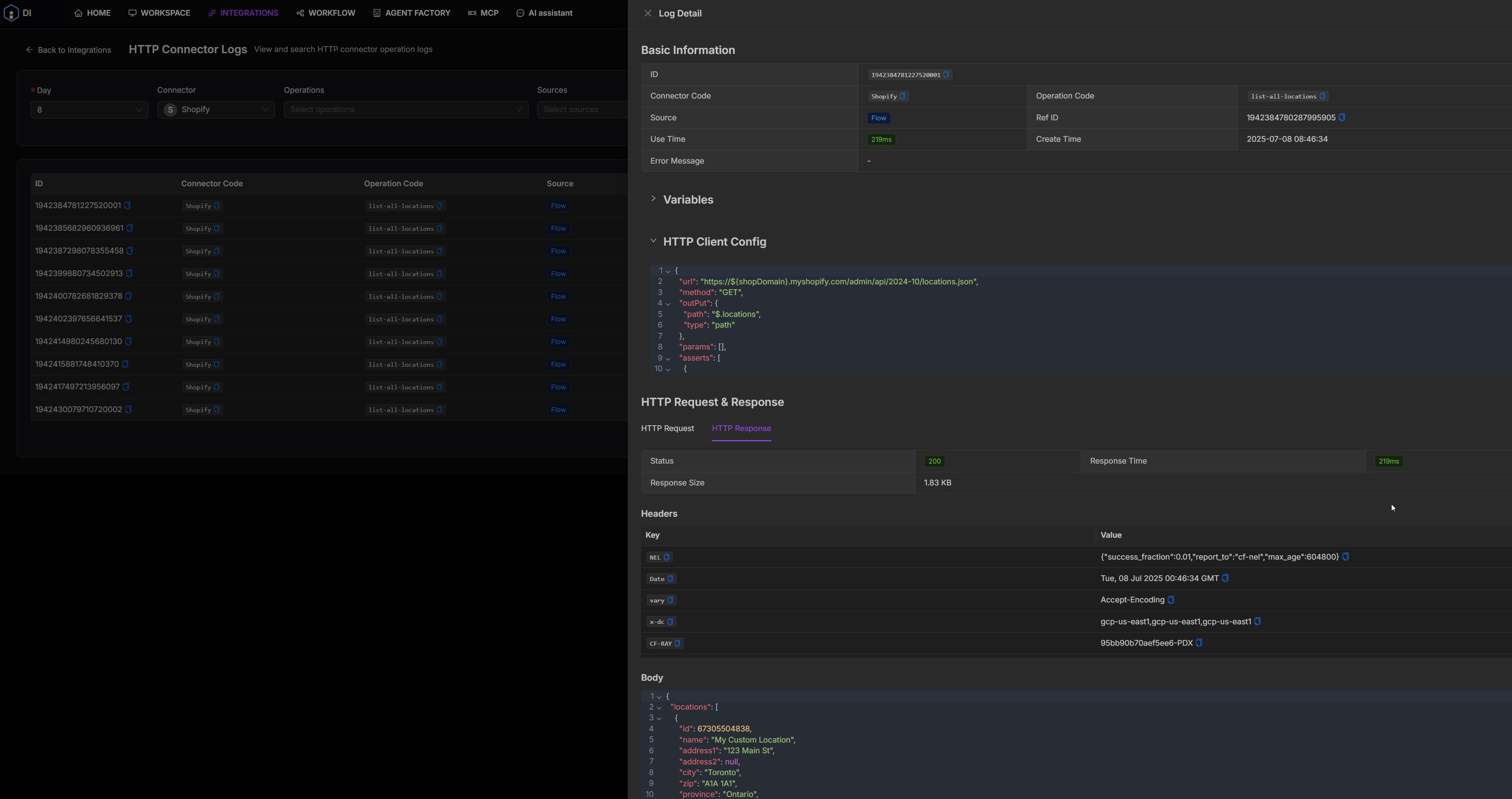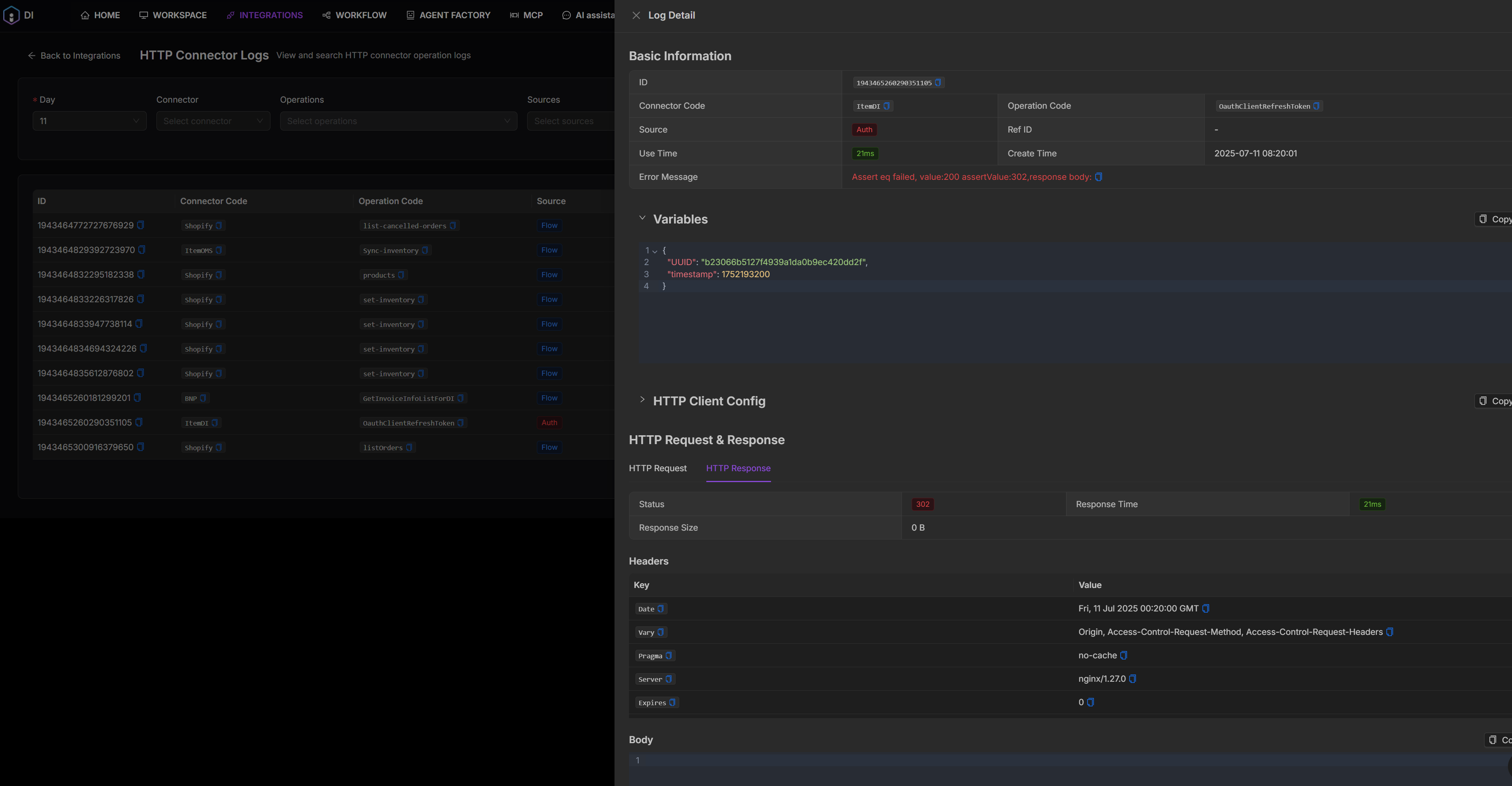HTTP Connector Logs
This guide explains how to view detailed logs for all HTTP-based API activity across connectors, flows, MCP servers, API and authentication flows. These logs allow you to inspect request/response content, validate variable injection, confirm request configuration, and debug integration issues.
View Logs

There are two ways to access the logs:
- To view all logs, navigate to Integrations > View Logs.
- To check logs for a specific integration, click View Logs from the integration list.
You can filter the logs using the options shown below:

- Day: Filter logs by a specific date
- Connector: Select a specific connector
- Operations: Filter by a specific operation or feature (currently not supported)
- Sources: Filter by request source (
Flow,MCP,Auth,API) - Sort By: Sort logs by creation time or usage time
- Reset: Clear all applied filters
View Log Details

To view full request context, click Details on any log entry. Each log contains the following sections:
| Section | Description |
|---|---|
| Basic Information | Metadata about the request (source, connector, execution time, etc.) |
| Variables | Runtime parameters injected into the request (e.g., query strings, headers, or body values) |
| HTTP Client Config | Request structure defined in DI (method, body, output handling, etc.) |
| HTTP Request & Response | Final request sent and raw response returned from the third-party API |
Basic Information
| Field | Description |
|---|---|
| ID | Unique identifier for the log entry |
| Connector Code | Name of the connector (e.g., Shopify, ItemOMS) |
| Operation Code | Operation or feature code (e.g., listOrders) |
| Source | Request origin (Flow, Auth, API, MCP) |
| Use Time | Duration of the request in milliseconds |
| Error Message | Error detail if the request failed (e.g., assert failed, status != 200) |
| Ref ID | Reference number (for tracing source logic) |
| Create Time | Timestamp of request execution |
Source values:
Flow: Triggered from a connector node in a workflowMCP: Triggered from an MCP-compatible serverAuth: Triggered during an authentication flow (e.g., token exchange)API: Triggered via an API call to DI from an external system
Debugging

If a request fails or behaves unexpectedly, use the Error Message and the following sections to troubleshoot.
| Section | Debugging |
|---|---|
| Variables | Confirm that all required parameters were injected properly. |
| HTTP Client Config | Check that the request was structured correctly in the connector or feature config. Compare with the third-party API spec to ensure your setup aligns. |
| HTTP Request | Inspect the final request sent to the API. |
| HTTP Response | Analyze the response to understand failure causes. |